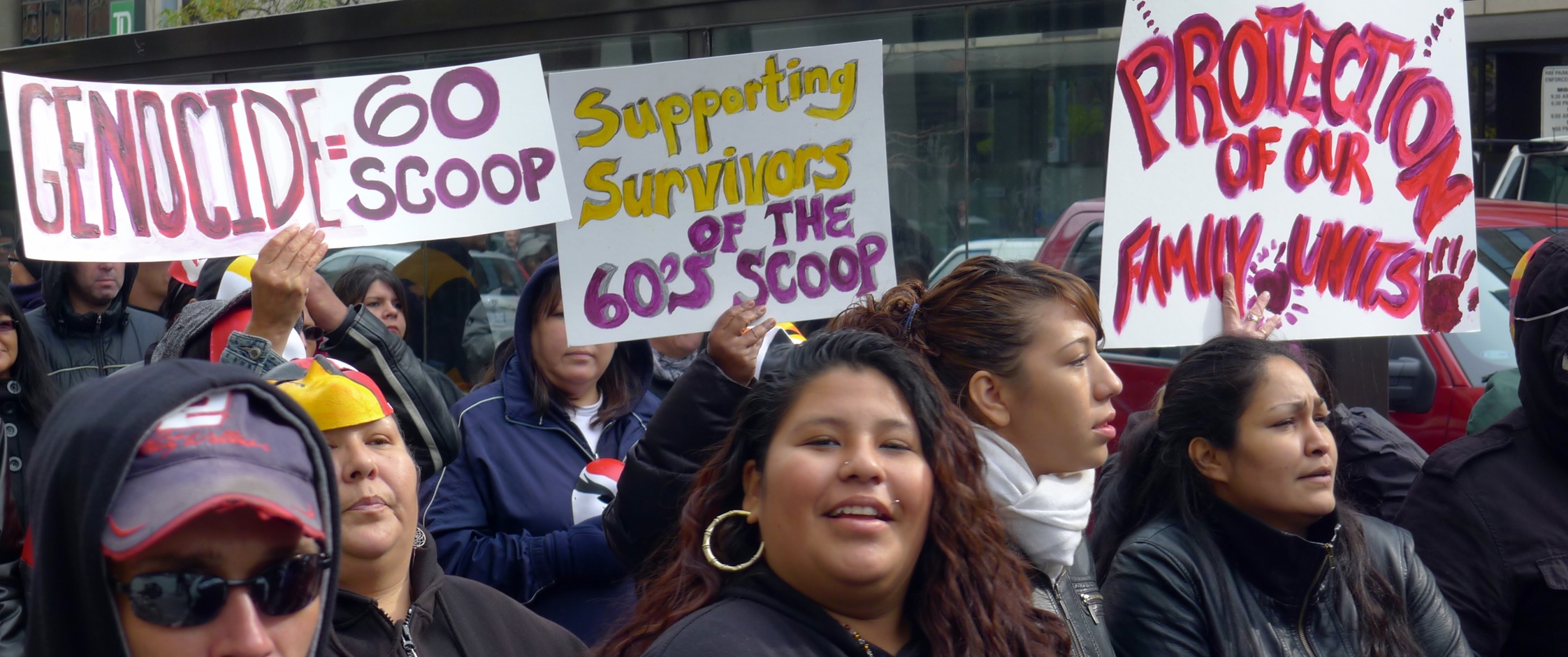
Between 1965 and 1984, child welfare authorities forcibly removed thousands of Indigenous children from their families and communities. They placed the children in foster care or adopted them out to non-Indigenous families. This action is known as the Sixties Scoop.
In October 2017, the Government of Canada reached a settlement agreement in principle to compensate survivors of the Sixties Scoop for the loss of their culture, language, and identity. The courts approved the settlement and claims for compensation are in process. Part of the settlement includes the establishment of a Sixties Scoop survivors foundation.
Sixties Scoop survivors foundation
The government set aside $50 million to establish an independent Indigenous healing foundation to provide culturally appropriate counselling for survivors. The foundation will focus on healing, wellness, language, culture, and commemoration.
Engagement sessions with survivors were held in 10 locations across Canada to develop the foundation. Survivors attended to share their experiences and have a say about:
- what the foundation should do
- who should govern it
- what it should be called
Engagement sessions were open to all First Nations, Inuit, Métis, and non-status who were affected by the Sixties Scoop action.
The BC engagement session was held in Vancouver on February 1, 2020.
Where to get more information about the survivors foundation
See the Sixties Scoop foundation website for their engagement sessions report and recommendations.
Claims for compensation
The deadline for filing claims for compensation was August 30, 2019. You can claim for compensation if you:
- are First Nations, Inuit, or Métis (Métis people might qualify if they have Indian status),
- were taken from your home in Canada between 1951 and 1991, and
- adopted or placed in non-Indigenous homes.
Where to get more information about claims
See the Sixties Scoop class action lawsuit website for updates.
In BC, Klein Lawyers (Vancouver) process compensation claims without legal fees. The government pays their fees. Their fees won't come out of the compensation for survivors.
image credits:
Sixties Scoop Rally & March at Allen Gardens, Toronto, Fall, 2011
First Nations Health Authority — Gives mental health and emotional support to Indian residential school survivors — Call 1-877-477-0775
KUU-US Crisis Line Society — Crisis line dedicated to the Aboriginal community — Call 1-800-588-8717 (24 hours a day)
Tsow-Tum Le Lum Society — Has programs that support survivors of trauma and Indian residential schools
